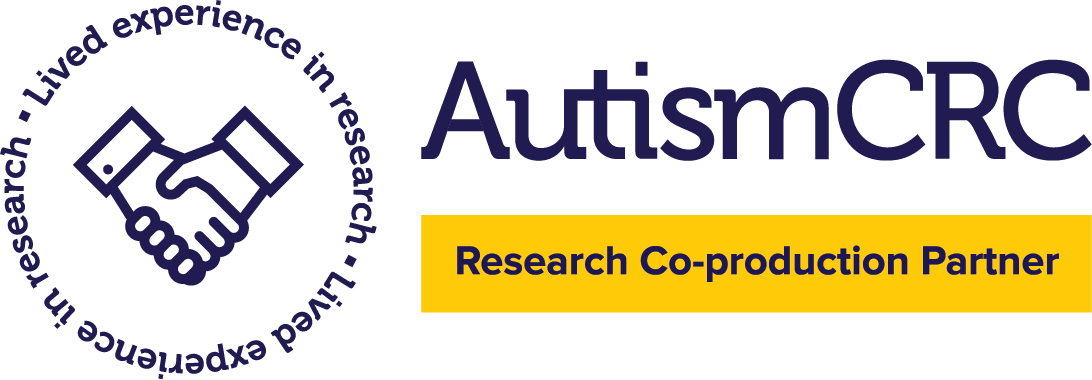Research co-production partners announced
- Autism Spectrum Australia (Aspect)
- Macquarie University
- Curtin University
- University of Southern Queensland.
These organisations have demonstrated a commitment to research co-production on a sustained basis. Evidence demonstrates that engaging individuals on the spectrum and their families and carers as peers in research – from the definition of need to the conduct of research and its application – promotes quality, translatable research relevant to the needs of the community.
To highlight those organisations who are committed to sustainable research co-production, we established the Autism CRC Research Co-production Partner Initiative in 2018. Our co-production partners have demonstrated:
- Commitment to co-production: through completed, continuing and research yet to commence
- Appropriate engagement and recognition: co-producers on the spectrum and/or their families/carers have been, and will continue to be, engaged, recognised and rewarded appropriately
- Sustainability of co-production: the organisation takes a sustained approach to research co-production, including promotion of co-production internal or external to their organisation.
An expert panel, comprising autism researchers and autistic adults, reviewed and assessed all applications, with recommendations then made to the Board of Autism CRC.
The Co-Production Partner Initiative builds on previous work undertaken by Autism CRC to promote and facilitate co-production practices, including the development of Inclusive Research Practice Guides and the establishment of the Sylvia Rodger Academy.
We commend these organisations for the valuable work they are doing to genuinely engage and work with the autistic and autism communities.
It is very pleasing to see growing recognition of the value of co-produced research with and for the community, and we look forward to recognising other Research Co-production Partners over the coming year.
A new Research Co-production Partnership round is due to open later in 2019. For more information about becoming a Co-production Partner, see our web page.

Updated: 25 March 2019
First Published: 19 February 2019